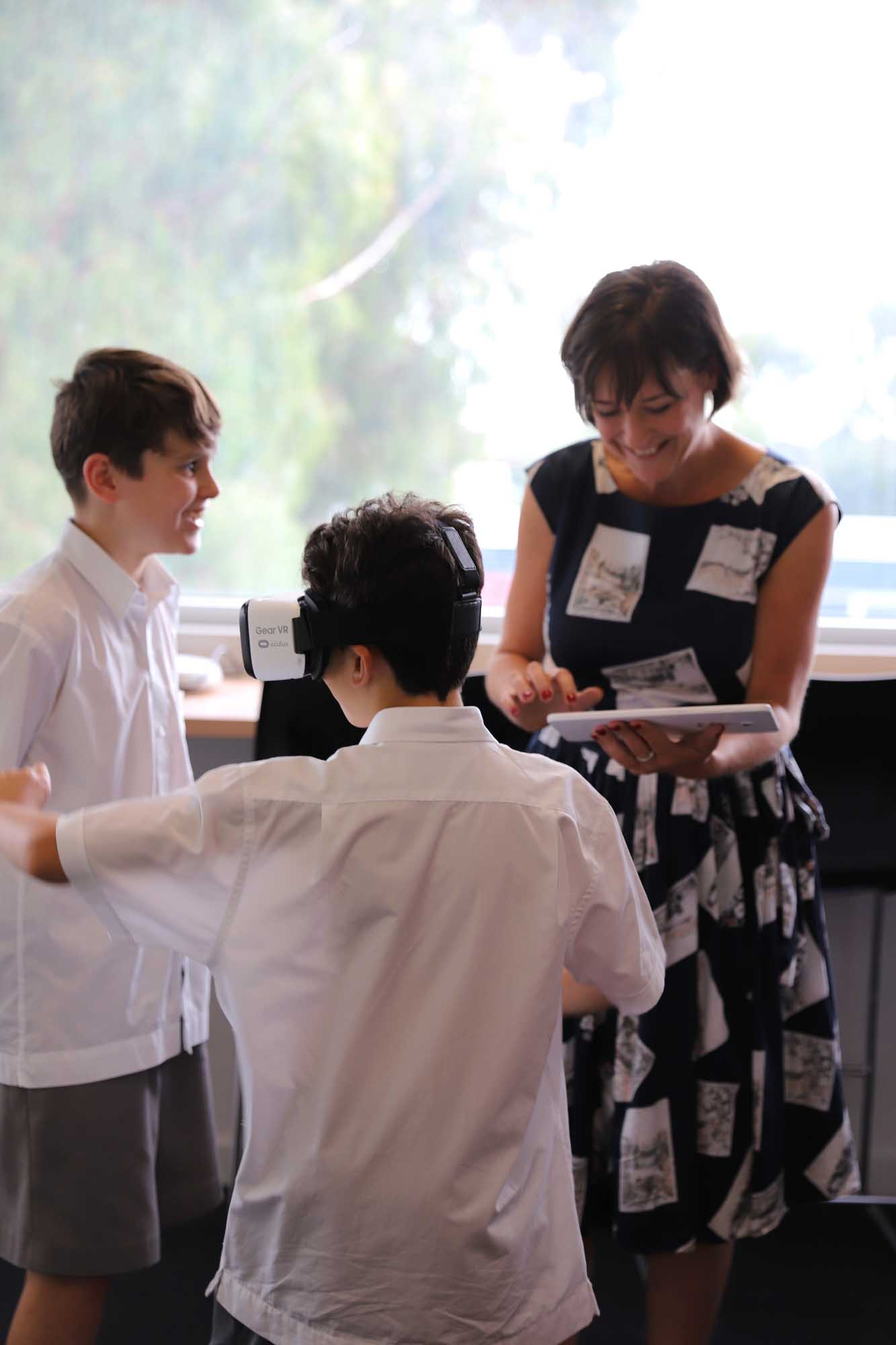
What a strange world we live in, when as a school Principal, I have spent the last three school weeks occupying a nearly empty school, void of most of the things that give it life and vibrancy. To wander the empty halls and classrooms has been a reminder to me of all the things I have cherished throughout my career, things that give me a sense of purpose, a reason for getting out of bed each day. Every member of staff and every student I have spoken to echo the same sentiment of desperately wanting to get back to school. I hope and pray that day will come sooner rather than later, and once again that I can share the day with the eleven hundred boys and their professional and dedicated teachers.
I share an article sent to me earlier in the week addressing our current situation. I don’t think I could say it any better, but I do want to remind all in the community that there will be positives to come out of this tragic episode, just as there always are, and we need to look for and celebrate these to ensure we come out of this better people.
I think our students will be stronger for the experience. They will have been forced to take more responsibility for their own learning, and they will be more independent and more resilient. I am sure we will all appreciate many of the things we have taken for granted in the past. I think we will all have reconnected with our families and once again learnt how much fun we can share. I feel it is vital to always have a sense of hope and in the famous words of Monty Python: ‘Always look on the bright side of life.’ Enjoy the read.
A Reflection: Safety first, when it’s back to school
“Even the most reluctant learner in Year 9 will be keen to be back at school once it’s safe to do so. Schooling is, after all, relational and social. Most students will tell you the best thing about coming to school is being with their teachers and their friends. The collegiality between teachers and support staff is central to those with a career in schools. Wandering from corridor to classroom without a student or colleague in sight is a profoundly depressing experience for a principal.
COVID-19 imposed sudden and new challenges on schools. I doubt there would be a principal or teacher within Australia that would not have seen the last five weeks of Term 1 as the most challenging of their career. Most responded with two guiding principles: what must be done to keep students and staff safe, and how quality learning can be maintained. Once these priorities were determined, decision making became much easier.
The broader confusion about the meaning of pupil-free days, online and remote learning, and what social distancing looks like in a school, were unhelpful distractions – as are the continued differences to the return to school debate between different jurisdictions and experts.
Most schools have a communication platform which was enhanced to provide remote learning in a short timeframe of a week to 10 days. This process raised issues of resourcing and equity, and also showcased the professionalism and capacity of teachers and support staff, the trust in their school of families, and the already widely-recognised ease of young people with communication technologies.
None of this has been easy or entirely satisfactory. The serious disruption to student wellbeing and the frustration and anxiety many have experienced should not be discounted by schools or the broader community. Unanswered questions for students pursuing a Year 11 and 12 credential remains an obvious area of concern, as has the situation of the student who struggles with learning, medication, and psychological damage from isolation. Very sadly, some students are far safer at school than otherwise.
There are longer-term challenges remote learning cannot meet. Great schools are places that build shared identity through assemblies, uniform, year meetings, visits, excursions, trips, and camps. Extra-curricular activities also play a key role. Schools provide valuable opportunities for developing a sense of shared responsibility, respect for and integration of difference, the relationship between individuals and the group, and the chance to participate in the larger group to hear and learn from the shared response of laughter, indignation, pride, and wonder.
Remote learning limits great teaching. Great teaching includes ways to enthuse, challenge, stimulate, correct, affirm, and encourage students. The sooner young people can experience all of this again, the better.
The longer the need for remote learning continues, issues around screen time, exercise, healthy diversion, touch, isolation, and the consideration of others, will need to be addressed. Many school leaders will be anticipating the need to provide more extensive and expert pastoral and psychological support for students upon their return. Transitioning back to school will not be easy for some.
I think the wider community can be confident in what schools are doing, and it is good to at last hear praise for schools from political, health, and other experts. Schools are robust and professional communities of ideas, innovation, and energy – well beyond a place that simply babysits children while the real business of life happens elsewhere!
Young people generally have confidence and trust in their schools. Many of them possess a degree of healthy self-efficacy and a curiosity and self-awareness that allows them to respond to all different kinds of challenges.
For schools to again become what they once were, they will need profound assurance that people are safe getting to and from, as well as being at school. Schools will need to be ready with strategies of reintegration and pastoral support that quickly reminds students that they are valued, respected, and trusted members of an exciting community of learners. They and their families deserve nothing less.”
Michael Lee
Principal, St Mary MacKillop College, Canberra
Rob Brennan
Principal
